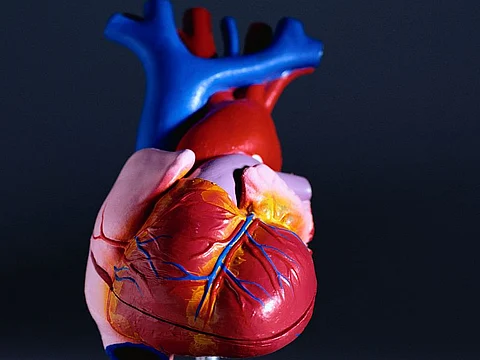WEDNESDAY, Jan. 8, 2020 (HealthDay News) -- Adult heart transplants from hepatitis C virus-positive (HCV+) donors appear safe, with no increased risk for adverse effects on one-year survival, according to a study published online Jan. 8 in the Journal of the American Heart Association.
Arman Kilic, M.D., from the University of Pittsburgh Medical Center, and colleagues examined the impact of HCV+ donors on outcomes of heart transplantation. Data were included for adults undergoing isolated heart transplantation in the United States from Jan. 1, 2016, to Dec. 31, 2018.
Overall, 4.4 percent of the 7,889 isolated heart transplants performed during the study period were from HCV+ donors. The researchers observed no statistically significant difference in unadjusted one-year posttransplant survival between HCV− and HCV+ donors (91.1 versus 90.2 percent; P = 0.86); after risk adjustment, the finding was similar (hazard ratio, 1.05; 95 percent confidence interval, 0.70 to 1.58; P = 0.80). In a propensity-matched cohort of 675 well-balanced patients (437 HCV− and 238 HCV+), overall one-year posttransplant survival outcomes were not significantly different (89.8 percent HCV− versus 89.2 percent HCV+; P = 0.88). There were also no statistically significant differences between the groups in rates of one-year drug-treated rejection, postoperative dialysis, or stroke.
"Refining management protocols related to HCV+ donor heart transplantation, along with education and expansion of these protocols to centers currently not using this potentially large pool of donors, appears warranted," the authors write.
One author disclosed financial ties to a medical device company and a second author disclosed ties to a pharmaceutical company.
Abstract/Full Text (subscription or payment may be required)


